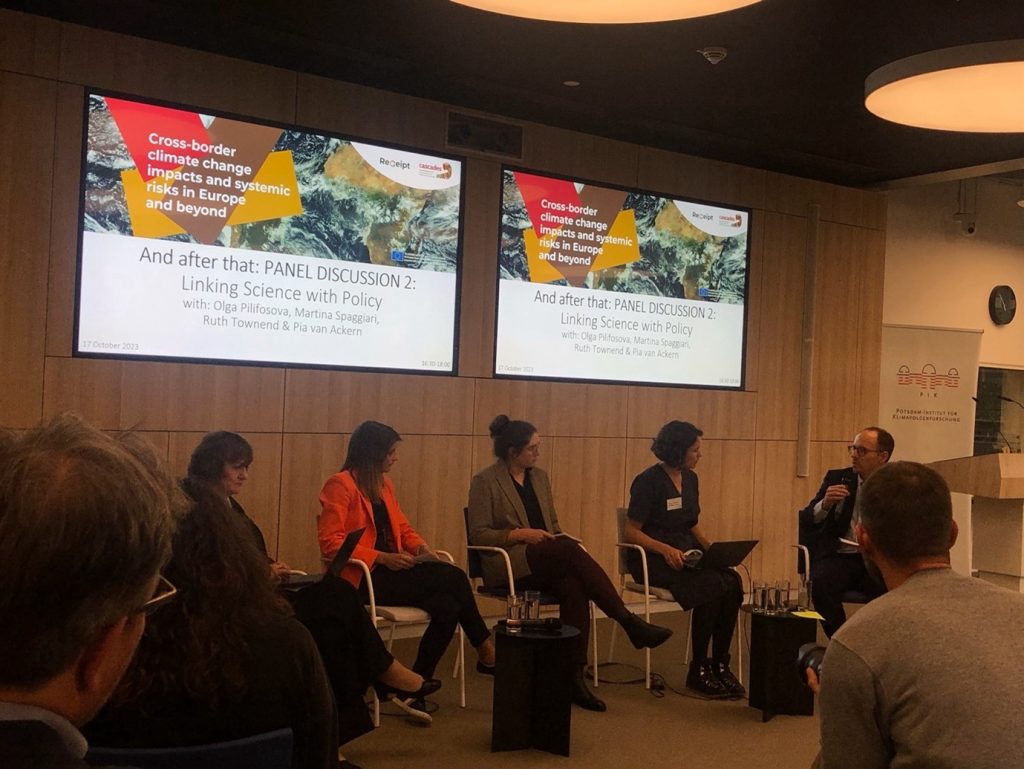
Depicting a panel discussion during the Postdam Conference 2023
The “Cross-border climate change impacts and systemic risks in Europe and beyond” conference was an inspiring forum to explore cross-border climate impacts and systemic risks. The conference themes ranged from trade and value chains to climate-development-security nexus, to conceptual framework to describe transboundary climate risk. Dr Elena Saggioro travelled to Potsdam, Germany, to attend the conference between 16-18 October.
In the Scenarios and Storylines theme, Elena presented the findings of our latest report for the UN Environment Programme, which delves deep into the transboundary climate risks in the Euphrates-Tigris Rivers basin. The focus is on water resources shared between Iraq, Syria, Iran and Türkiye, which are already a source of contention and are likely to become more so in the future climate, as our report finds. A key feature of the work, of interested to this research community, was the use of climate storylines to represent future uncertainty in regional climate change. Elena showed the importance of including socio-economic and environmental dimensions into the climate storylines: only in this way they can be meaningfully used to talk about climate impacts and adaptation. This approach is document in our paper.
Some of the key challenges and messages emerged from the conference, which are of interest to the Walker Institute work on adaptation and evidence-based policy-making are:
- Storylines and scenarios are proving useful conceptual and narrative tools to represent and communicate the complexity of climate change while making it tangible to people.
Yet work remains to be done in harmonizing approaches, focus more the attention on the adaptation/solution questions rather than the pure science questions, and ensure robust science remains at the heart of it.
- As a scientific community, we need to step up our dialogue efforts with policy-makers. Despite progress, our work is still too often siloed and thus fails to truly support decision-makers with accurate and understandable science. Among practical solutions discussed were embedding scientists for secondment in public bodies (and vice versa for policy officers) and increase funding to co-production and capacity building aspects in research projects.
This conference was organised by the CASCADES and RECEIPT research consortia, as the closing event of their programmes of work, funded by the EU Horizon 2020.

